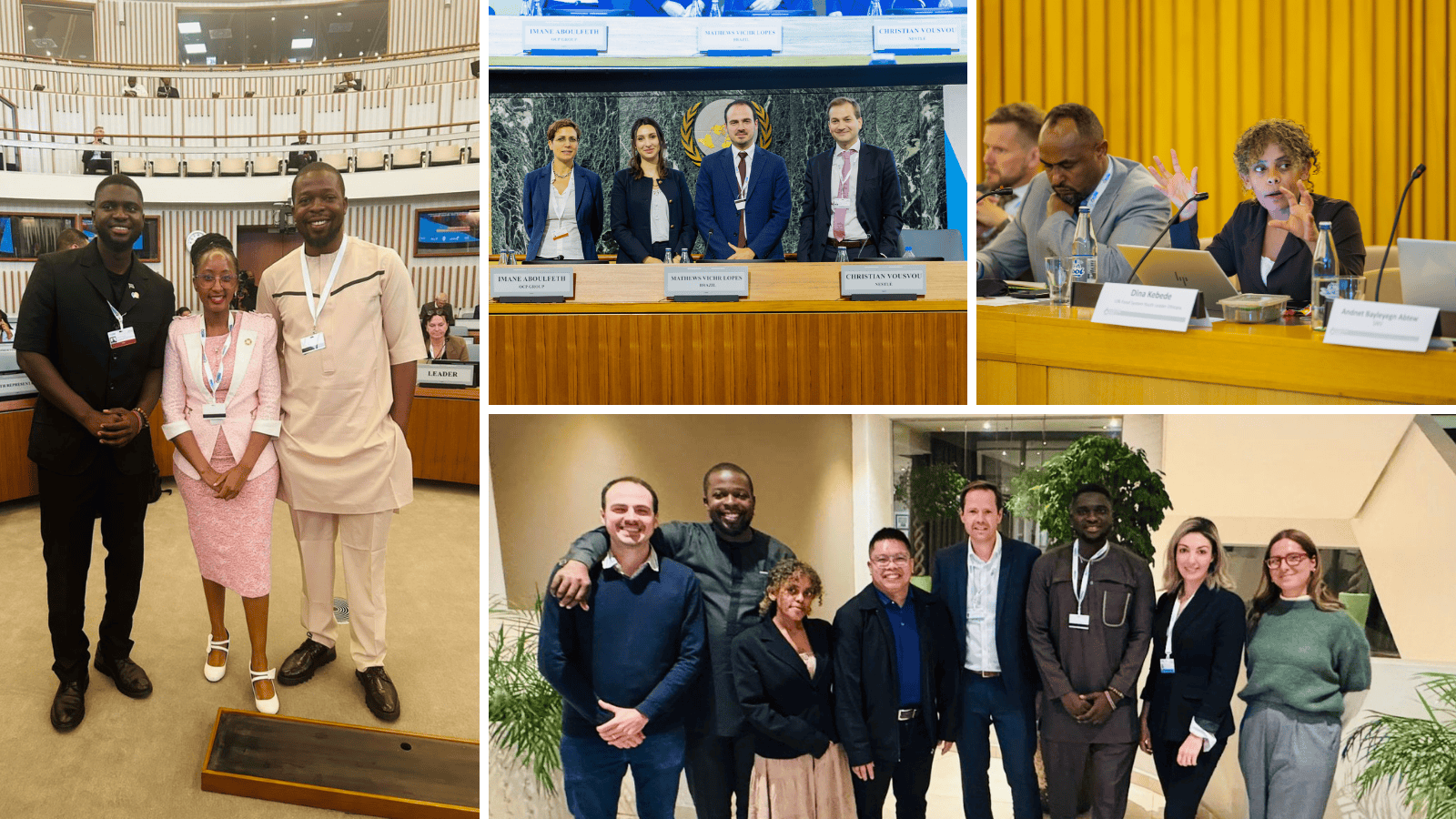When youth lead, the world listens at UNFSS+4
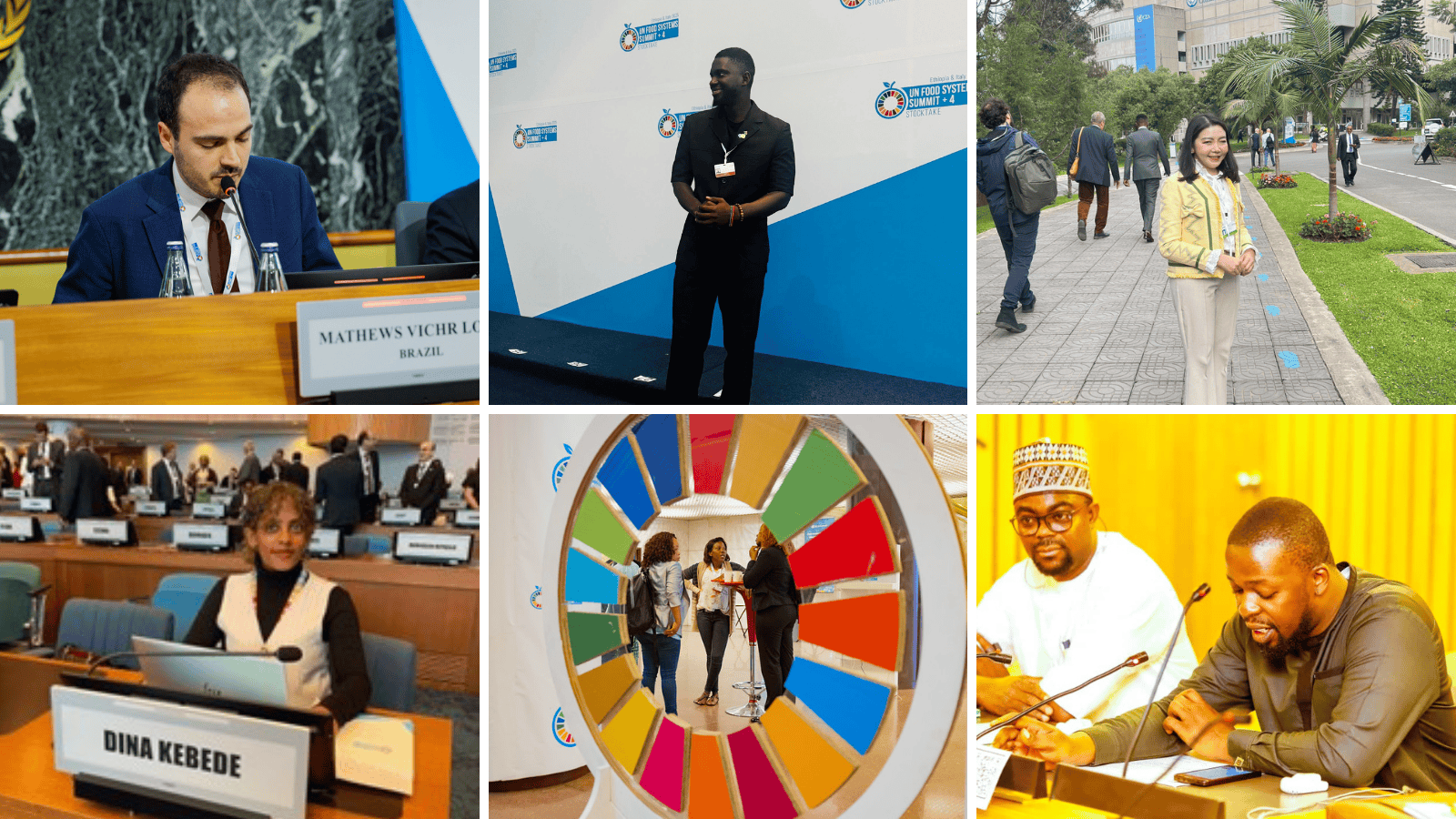
ADDIS ABABA, ETHIOPIA — At the 2nd UN Food Systems Summit Stocktake (UNFSS+4), held in July in Ethiopia’s capital, world leaders, development partners, and civil society came together to take stock of progress in transforming the way the world produces, consumes, and shares food. This year, the energy of youth leadership was palpable – building on years of engagement and steadily growing momentum in food systems transformation.
Among them were alumni of the UN Food Systems Coordination Hub’s Youth Leadership Programme (YLP) – a network supported by the German Federal Ministry for Economic Cooperation and Development – reminding delegates that transformation will not happen without the largest generation in history. Their presence built on momentum from the UNFSS+4 Preparatory Youth Conference in Bangkok earlier in the year, where more than 100 young changemakers, alongside 1000 virtual participants, from 50 countries gathered to draft priorities that fed into the Stocktake. That process culminated in the UNFSS+4 Youth Declaration, endorsed by over 3,000 young people worldwide.
A shared mandate for transformation
The Declaration, unveiled in Addis Ababa, was uncompromising: “Youth must no longer be tokenized or sidelined. We call for meaningful co-creation, decision-making power and direct investment in youth-led solutions.” It called the recognition of youth leadership not just a policy priority but “a moral obligation. A matter of justice, survival and shared responsibility.”
For YLP alumna Dina Kassa Kebede of Ethiopia, the words took on special resonance. Selected to speak at the UNFSS+4 high-level opening ceremony, she described standing before world leaders as a moment she would never forget.
“I did not feel like I was speaking only for myself – I carried the voices of young professionals, Indigenous youth, young farmers, and those living in crisis who still deserve the right to food,” she said. “The declaration is more than a statement; it is a call to action. Youth must be recognized as leaders, not just participants.”
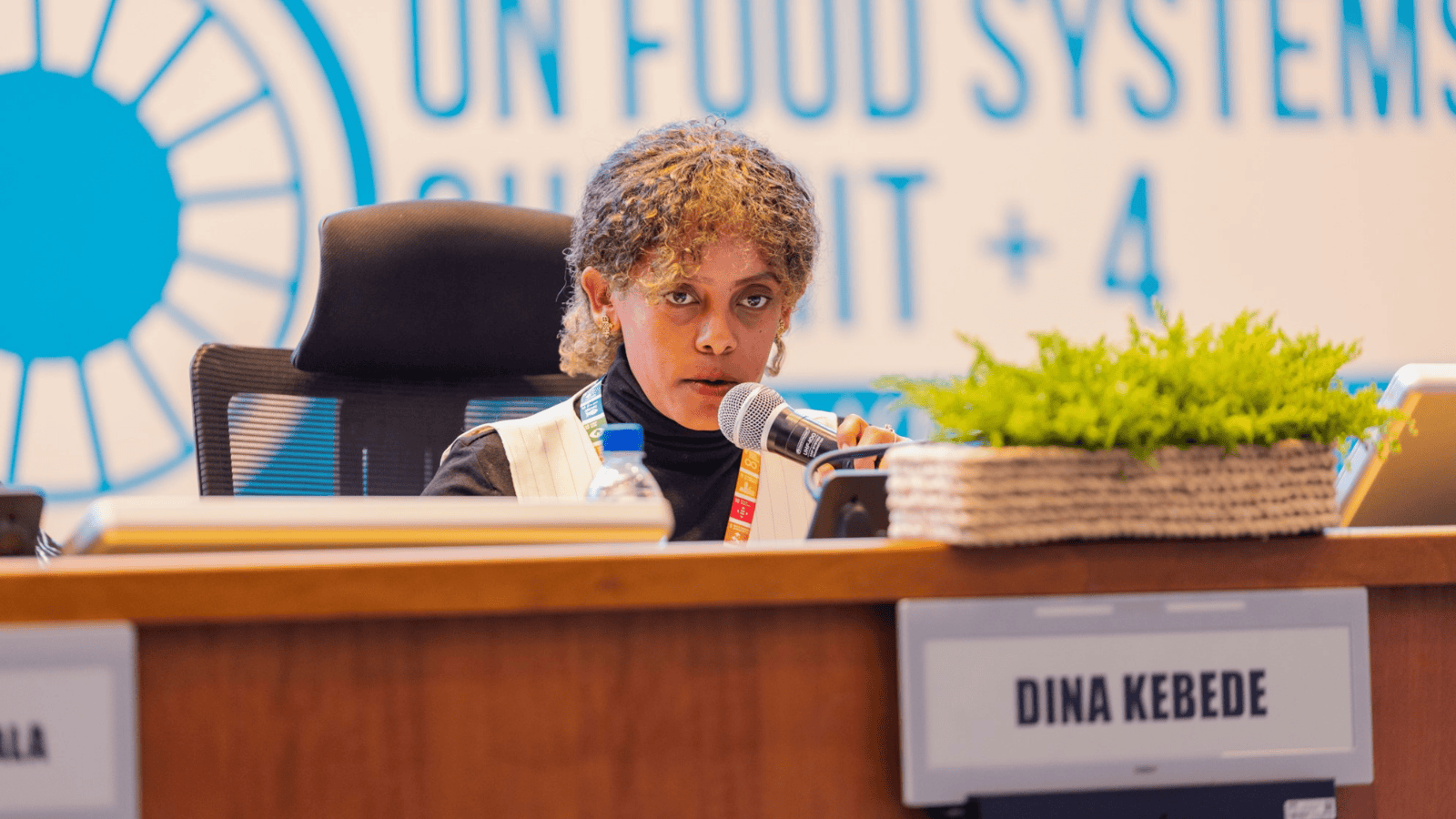
Dina Kassa Kebede giving remarks at the UNFSS+4 high-level opening ceremony.
Youth leadership across continents
For Mathews Vichr Lopes of Brazil, the Stocktake was both professional duty and personal milestone. As part of his country’s government delegation, he witnessed Brazil’s removal from the UN Hunger Map – a historic achievement powered by social policies, school meals, and family farming, the sector he works to strengthen.
“The Youth Declaration delivers a strong message: collaboration, investment, innovation, and genuine sustainability,” he said. “Youth must be seen as the main actors in transforming food systems in the medium term.”
Mathews left Addis determined to continue strengthening policies focused on rural youth and the incorporation of technologies that enhance the productivity and sustainability of small-scale agriculture, while also developing agroecological production through a rural association he co-founded. “The transformation of food systems depends on the development of viable and successful local solutions, rooted on the territories, that can be scaled up,” he said.
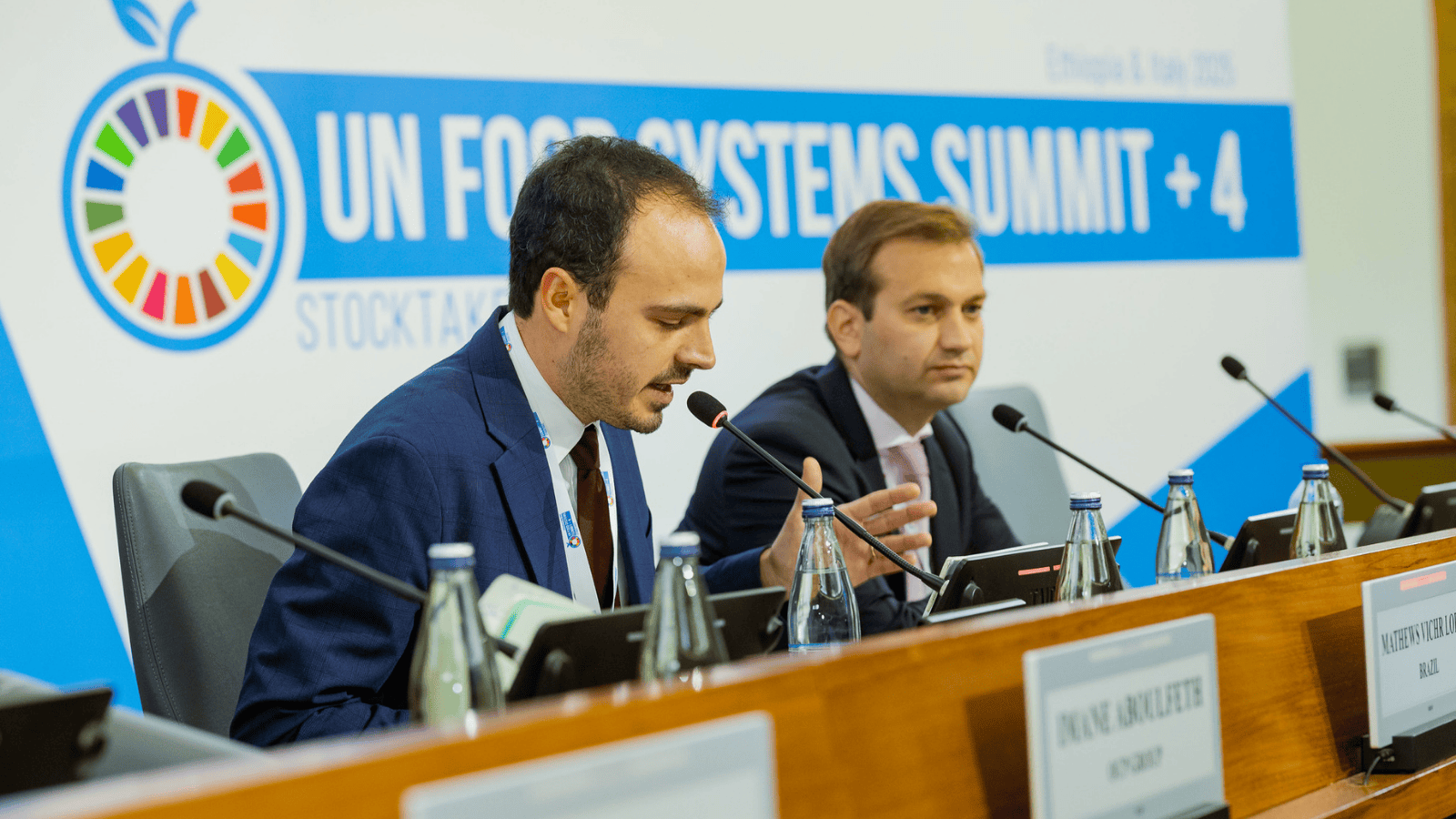
Mathews Vichr Lopes giving remarks at UNFSS+4 Investment Dialogue, “Accelerating Public-Private Collaboration for Place-based Approaches."
From The Gambia, Musa Juwara emphasized the power of political will he saw in Addis, from the UN Secretary-General’s address to commitments by governments large and small.
“The youth must move from declaration to commitment, from dialogue to action,” he said. Back home, Musa plans to support his National Food Systems Convenor’s office in aligning national strategies with the country’s food system pathway, and strengthening the youth ecosystem for inclusive governance.
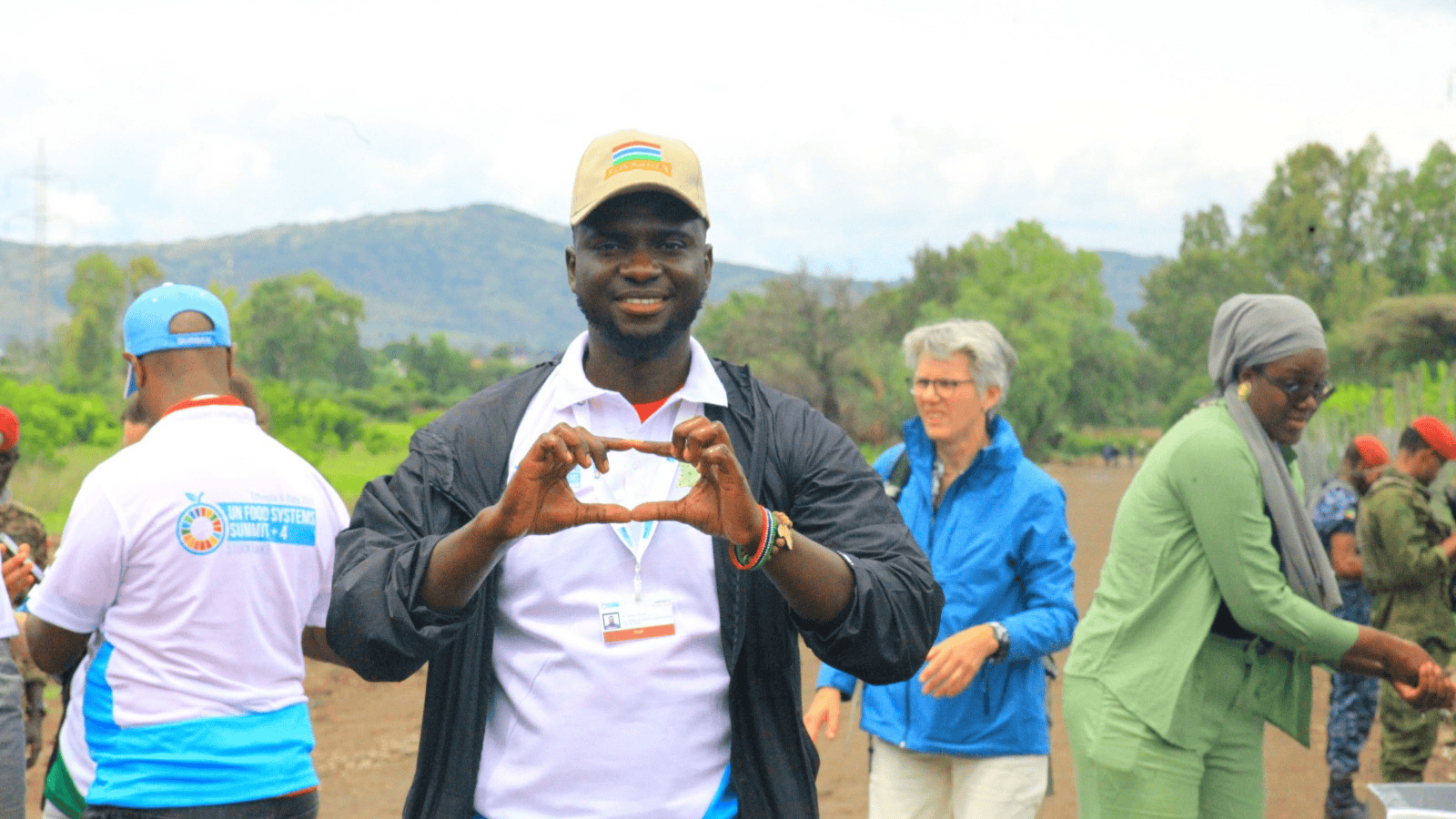
Musa Juwara at the UNFSS+4 tree planting field visit in Adama, Ethiopia.
Wannika Wutthi of Thailand brought a unique dual perspective – as a YLP alumna and a government officer supporting her country’s National Convenor. Invited as a panelist at one of the UNFSS+4 side events, she spoke about how Thailand is embedding youth perspectives into its food systems transformation and the importance of multistakeholder approaches to meet climate, biodiversity, and land goals.
“The Declaration’s call for direct investment in youth-led initiatives resonated deeply with me,” she said. “In Thailand, I want to make sure more young people are brought into national dialogues and decision-making processes, not just as observers but as active contributors.”
Her next step is advancing Thailand’s Youth Chapter under FAO, a platform to mobilize and connect young people across the country to shape sustainable food systems that respond to both local needs and global commitments.
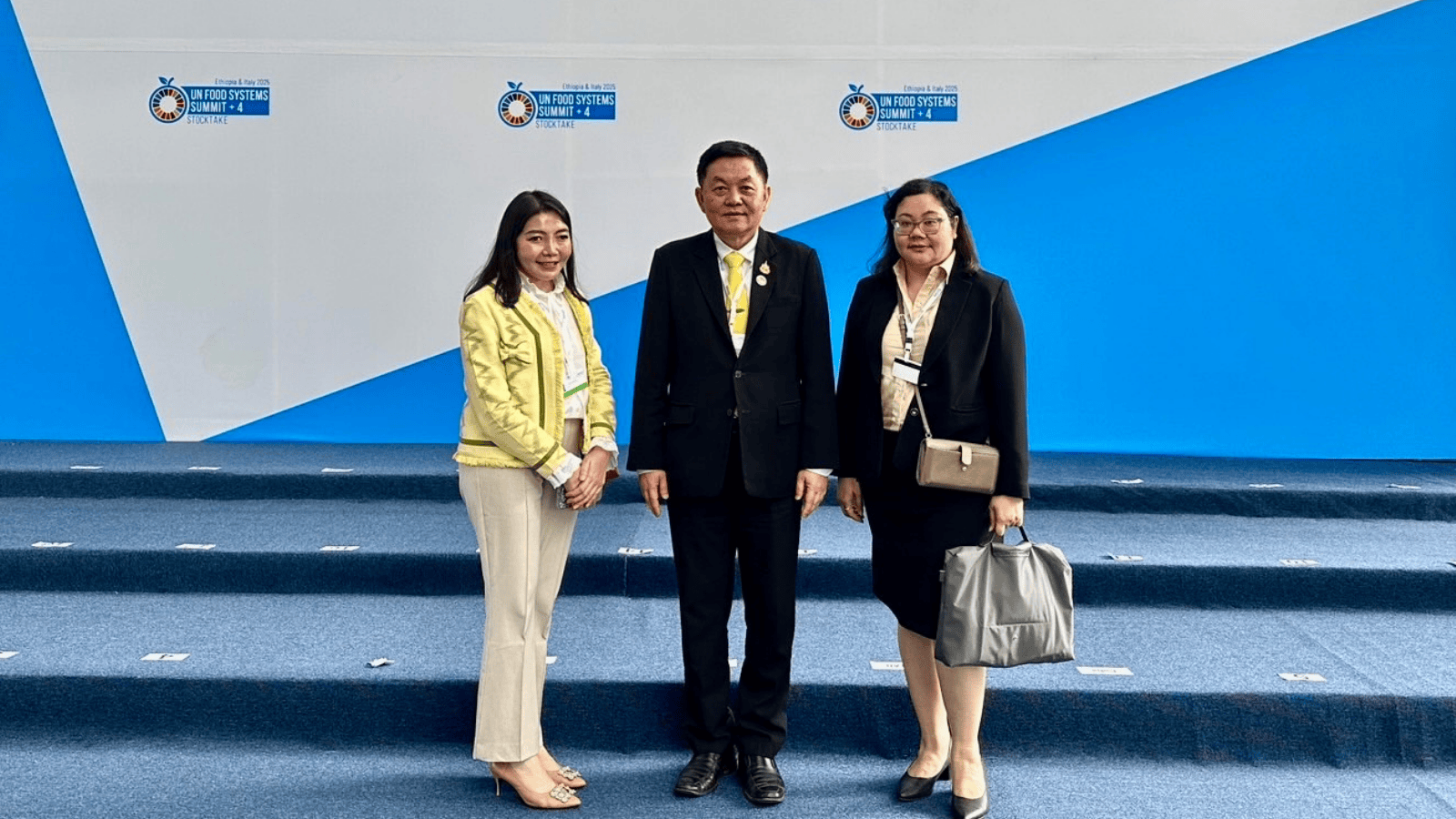
Wannika Wutthi (left) at the entrance of the UN Economic Commission for Africa.
For Lucius Chimezie Ndimele of Nigeria, the Stocktake reinforced that youth are already indispensable in governance. He opened Nigeria’s official side event alongside the country’s agriculture minister, an honor he said confirmed youth leadership “at the highest level.”
“Youth are not the future of food systems – they are the present,” he said. “Ignoring them delays transformation.” He plans to expand his Learn to Impact project, which equips young Nigerians to become food systems leaders through skill-building and community service, integrating lessons from Addis into its curriculum.
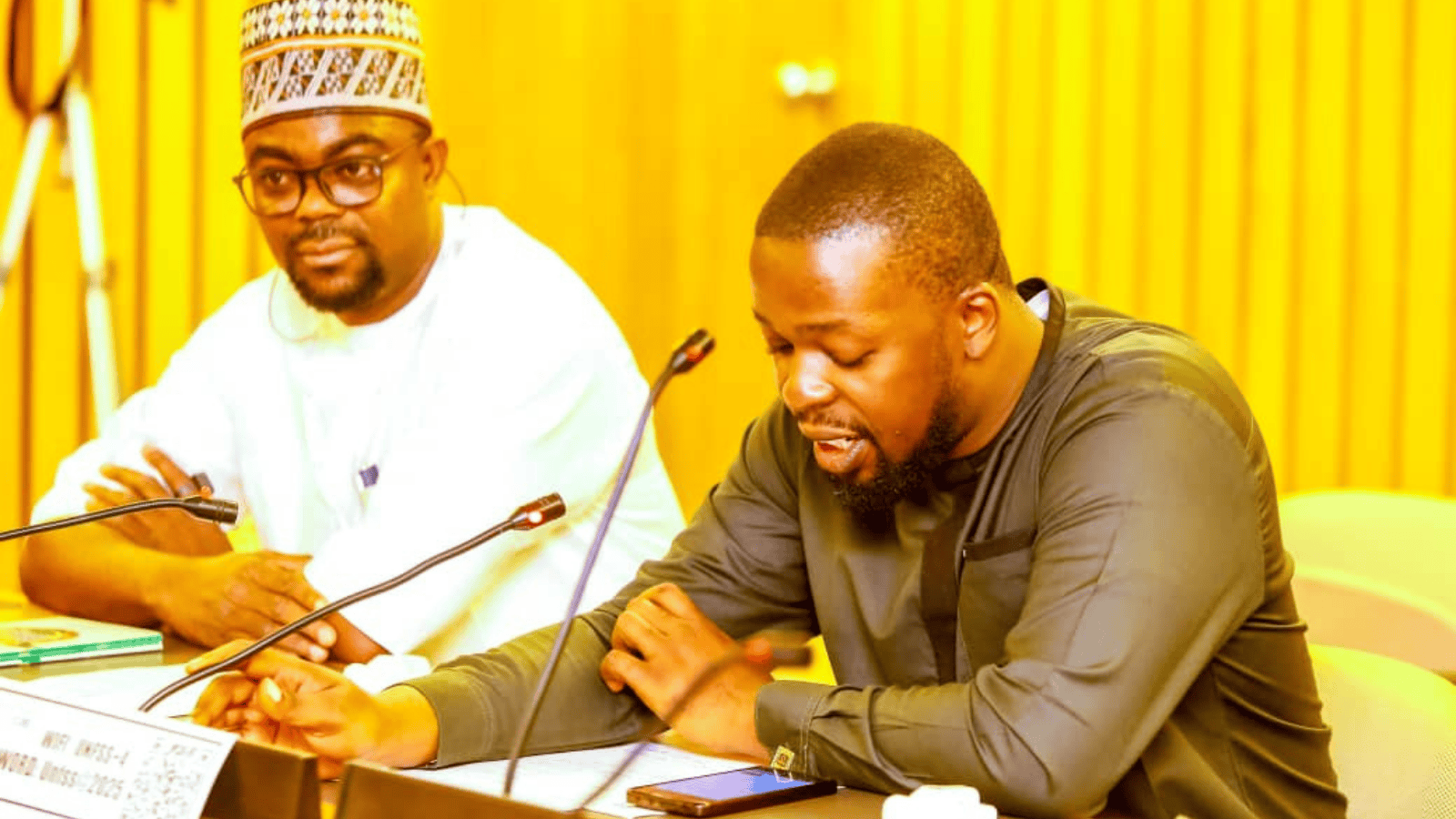
Lucius Chimezie Ndimele, giving remarks at Nigeria’s official side event, “Catalyzing Change: Showcasing Nigeria’s Innovations and Collaborations in Food Systems Transformation.”
Beyond representation
What united these alumni was the conviction that youth participation can no longer be symbolic. As Dina put it: “Representation alone is not enough—we must be recognized as active changemakers driving the transformation.”
Their experiences in Addis also revealed the global nature of food systems challenges. Lucius noted how issues his local community faces mirror those of communities thousands of miles away. Mathews pointed to the complex balance between development and climate justice in the Global South. Wannika observed the untapped power of grassroots youth networks awaiting recognition and resources.
The road ahead
Each alumnus left Addis with plans – whether to strengthen national pathways, build rural women’s leadership, scale youth projects, or root transformation in local agroecology. Together, they embodied the Youth Declaration’s spirit: linking local action to global momentum.
Related resources:
- UNFSS+4 Youth Declaration for Food Systems Transformation
- UN Food Systems Youth Leadership Programme (YLP)
- Meet the YLP alumni
